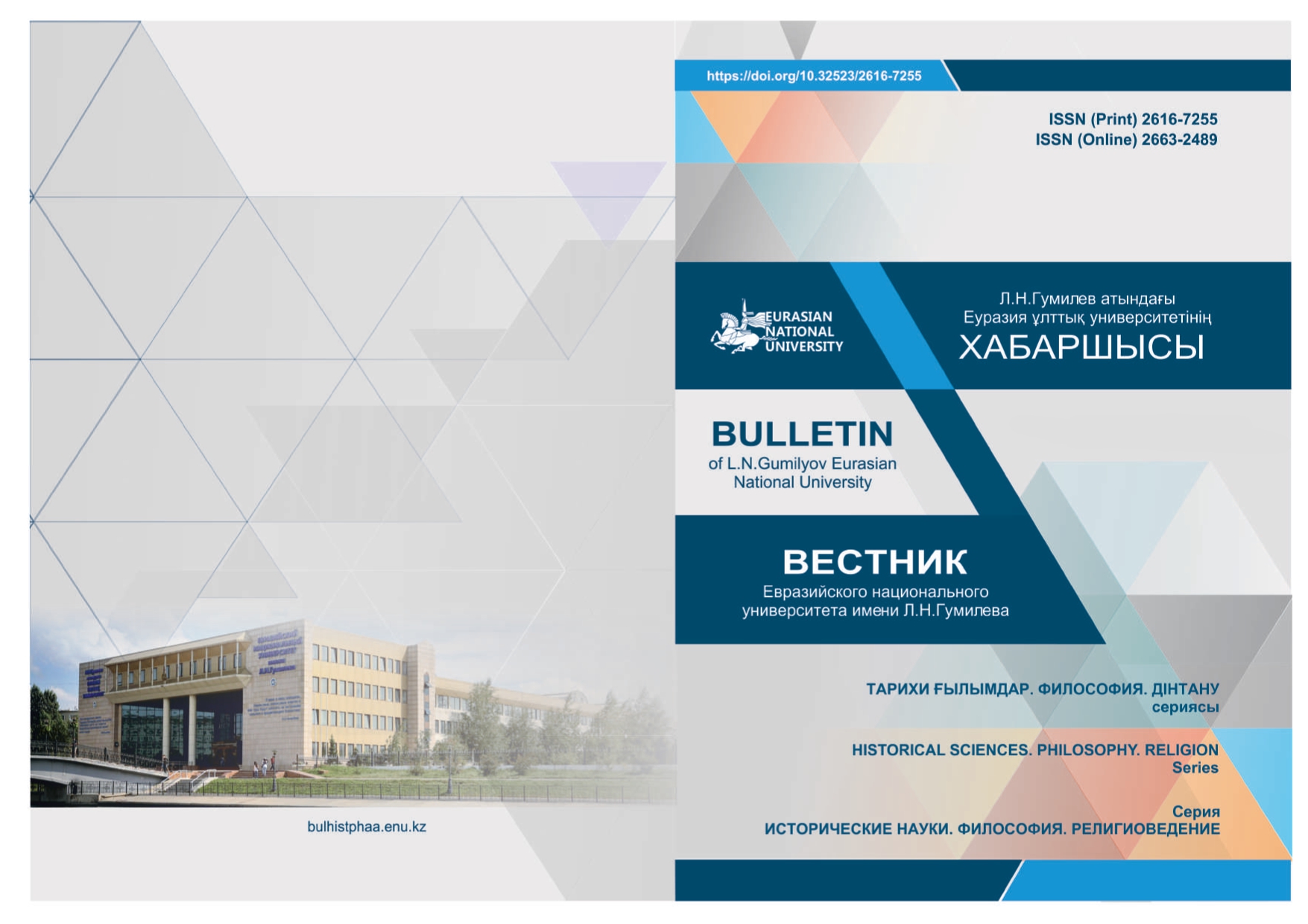Documentary films of the 1920s-1930s about the dynamics of the socio-cultural space of the Kazakh ASSR
Views: 333 / PDF downloads: 722
DOI:
https://doi.org/10.32523/2616-7255-2023-143-2-33-53Keywords:
Kazakh ASSR; ethnonational politics; documentary films; tradition and modernization; socio-cultural development.Abstract
Documentary films about Kazakh ASSR have not yet been included in the systematic field of historical research of the early Soviet period. Meanwhile, this visual source is an important component of the analysis of Soviet ethnonational policy of the 1920s-1930s. Filmography at the initial stage of its formation captured the transition of Kazakh society from tradition to modernity, deep socio-economic and other transformations in the Kazakh ASSR. The silent and sound documentary chronicles, reports, more complex in composition and drama film documents stored in the funds of the Central State Archive of Film and Sound Recordings of the Republic of Kazakhstan are of undoubted value. Almost all the most significant transformations in the republic in the early Soviet period were captured by experienced directors and cameramen in such a way that they give a concrete and voluminous idea of the changes in the social structure of society, the formation of the national working class and ethno-political elite, the solution of the "women's issue", urbanization, economic specialization of the regions of the Kazakh ASSR, the introduction of new standards of professional activity and private practices, daily life and major political events. Of great interest are the films recorded by documentary filmmakers, dramaturgically and compositionally arranged in accordance with the main trends in the development of cinema, as well as the socio-cultural and ideological-political paradigm of the Soviet state. Along with the traditional archival and published written historical sources available to scientists, film documents serve to study and complex understanding of the essence, manifestations and results of nation-building in the 1920s and 1930s. The article considers examples of a number of documentaries of the greatest interest for understanding modernization shifts and ambivalent manifestations of the transformations of the era of industrialization, collectivization and cultural revolution in the Kazakh ASSR.
Downloads

Downloads
Published
How to Cite
Issue
Section
License
Copyright (c) 2023 Amanzholova Dina A.

This work is licensed under a Creative Commons Attribution-NonCommercial 4.0 International License.







